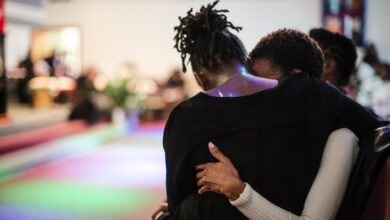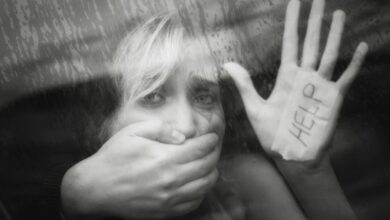Getting Counselling interview with Life Line

Please tell us about yourself and your involvement with Life line?
My name is Malashi Lucky Mabunda, from Life line Pretoria. I work as a community development coordinator and my job is to go out there in the community and implement the needs of the community. I have projects that I do at schools, the community, corporate companies and I also do talks on radio and prisons.
What is life line?
Life line is an organisation that offers emotional counselling through telephone or face to face and these services are free. Life line started in Sydney Australia 1968 and it was started by Dr Wallker who saw the needs in the community after someone who he was supposed to talk to committed suicide, then he realised we needed to start something. It then came to South Africa and it’s still going strong.
Tell us about the objectives of Life line?
The objective is counselling, we want to see everybody being emotionally aware. So we go out there offer counselling, trainings and any other means to reach the community.
What are the main issues that you tackle at Life line?
Besides counselling some of the issues that we face are unemployment in the youth. We want to empower the youth but you find that they are hopeless or discouraged because they’ve been unemployment for some time. So what we saying is that, regardless of your situation you are still a human being, so we want to instil that self worth and self esteem to believe in yourself. Where there is life there is hope and where there is hope there are possibilities and if you have hope anything can happen.
Please tell us about the different types of counselling that you have?
At the moment we have two types of counselling, the face to face counselling and the telephone counselling but off cause that are just different streams. But at life line we offer general counselling like stress, rape, suicide, abuse, unemployment, education so we have different categories that will cater for everybody.
Tell us about the initial stages of counselling?
I believe counselling is more like constructing a building. We have the foundation stage where it’s the first stage, but all the stages are important but if you lose it on the first stage you would have ruined the session because it is the building stage where as a counsellor you meet you client for the first time and make them trust you and feel comfortable.
Then we have the middle stage were a person will talk about their troubles and feelings, then we go to the last stage were you help the person to make a plan to manage their problems.
Please tell us about the advantage and disadvantage of face to face as well as telephone counselling?
The advantage of face to face interview is that you speaking to someone that you can see. It’s easier for the counsellor as you can gain control of the situation and the same goes for the client. The disadvantage of telephone interview can be talking to someone and not experiencing the nonverbal (body language) communication.
Do you think that they are a lot of youth out there who are still reluctant about getting counselling?
Yes they are but I just don’t know if they are reluctant because they don’t know about counselling or because of how they were raised, their culture and background. So there can be a lot of explanations on that. But we do find that a lot of youth are not coming for counselling, and the sad part is most of the problems that we facing as a country are affecting the youth, and that’s when you find them taking drugs as they trying to escape from reality.
So would encourage them to go out for counselling, I am one of the people who has benefited from counselling, it’s not easy but I’m grateful for that. Counselling is growth and development and growth is not easy. Having to face your nightmares is not easy but there’s growth after that.
What do you think about the notion that women are very strong than men?
I don’t know because you do find women who are strong and those that are vulnerable and you find men who are strong and those who are vulnerable so I think it depends on the individual. But maybe for women in terms of being strong it’s because they are not afraid to seek help when needed. So that’s when you will find support groups that have more women than men.
How can a young person be a part of Life line?
You can contact us and require about the course or log on to our website and find everything there. We also have the community project were we go and market coursers that we might have. The is also the school projects that we running in partnership with the Department of Health and we doing all of these in the name of emotional wellness.
Do you have young people volunteering?
Yes we do have young people volunteering at Life line, as a community developer I work mainly with young people. So I take young people with me when I go do the school projects, so they can relate with each other unlike taking an old person.
How can a person get in contact with you?
They can phone us on 012 804 1853 it’s the main office number in Pretoria, so if you are in a different area and you don’t know the number of that area you can still phone us and we will refer you to them. Our website is www.lifelinepta.co.za. You can also join our Facebook page at “lifeline Pretoria”.
Do have any advice for the youth in general and those who want to get counselling?
What I can say to them and also talking from experience, I have been in a situation whereby I needed counselling but I was not aware that I needed it because I didn’t know any background about counselling. After realising in matric that I didn’t have money to go to varsity, I was depressed and almost committed suicide but something just told me to hang in there and friends encouraged me. But I joined Life line when my sister was murdered and I couldn’t cope with the reality I needed someone to talk to and that’s when I joined Life line to also give back to the community. People need to hang in there, as there’s a light after the tunnel we just need to find our purposes in life and why God created us.




